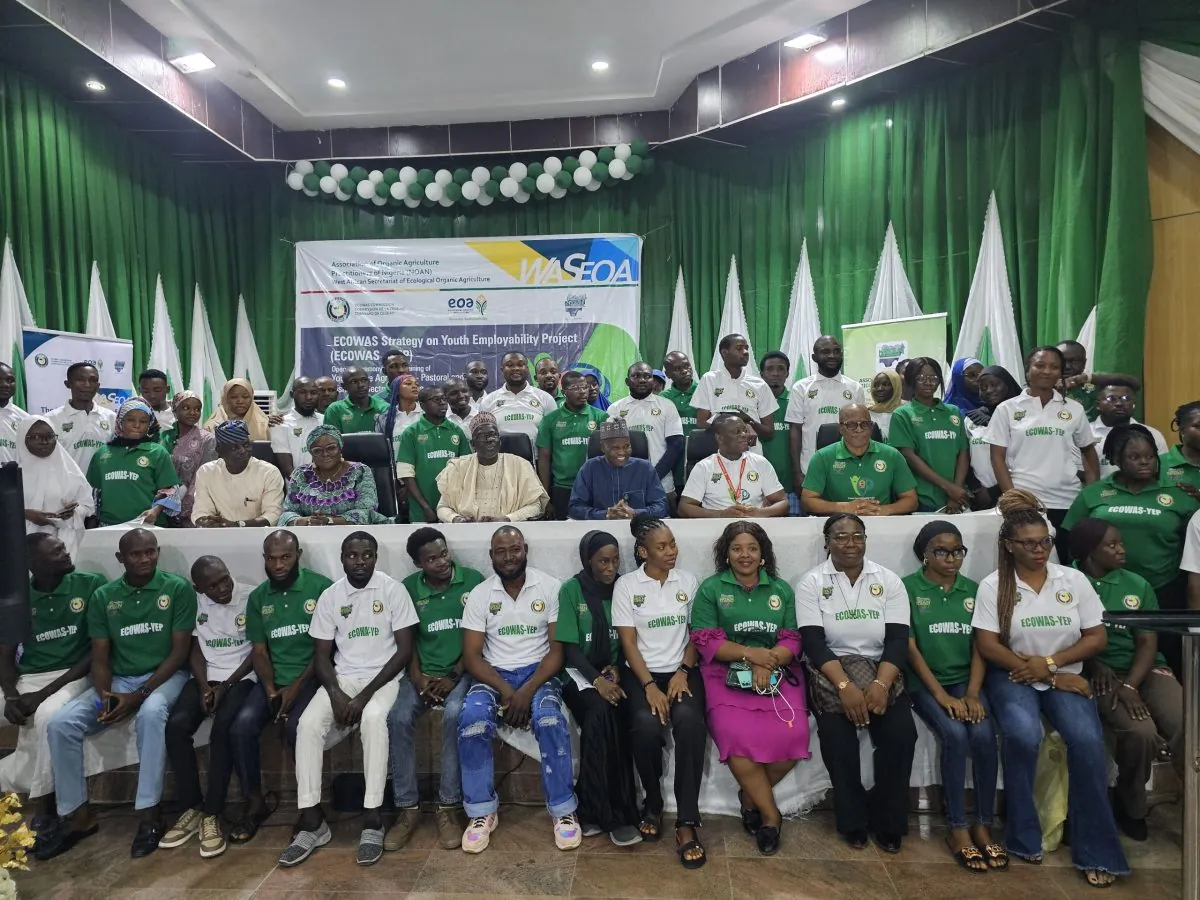By Collins Nnabuife
Copyright tribuneonlineng

The Economic Community of West African States (ECOWAS) has launched a major agribusiness and organic farming training programme in Nigeria, aimed at equipping young entrepreneurs with the skills to turn agriculture into a profitable business, reduce unemployment, and expand regional export opportunities.
The initiative, under the ECOWAS Youth Employability Programme (YEP), was inaugurated on Friday at the Agricultural Research Council of Nigeria (ARCN), Mabushi, Abuja.
It is being coordinated in Nigeria by the Association of Organic Agriculture Practitioners of Nigeria (NOAN) with strong backing from the Federal Ministry of Agriculture and Food Security.
Professor Jude Obi, President of NOAN, described the programme as a defining moment in Nigeria’s quest to position agriculture as a business rather than a subsistence activity.
According to him, the training is structured not only to provide technical know-how but also to connect participants to markets, cooperative schemes, and digital platforms that can grow their enterprises.
“This programme is about equipping young people with practical, market-driven skills in agribusiness, agroecology, and organic value chain development.
“It will transform them from job seekers into job creators, capable of driving innovation, building cooperatives, and transferring knowledge across communities”, Obi said.
Over 14,000 applications were received, with 300 participants selected from across Nigeria. Data from the cohort indicates that 62% are aged 26–35 years, representing a dynamic and innovative demographic.
Around 44 per cent are university graduates, many of whom are unemployed and seeking sustainable career opportunities in agriculture. Nearly 67 per cent already have prior agricultural training or experience, which makes them ready to scale up their ventures with the right tools and networks.
Their areas of focus reflect a strong business orientation. About 36.7 per cent opted for biological input production, including biofertilizers, biopesticides, and composts that reduce farm costs and create new green enterprises.
Another 32.7 per cent chose organic crop diversification, with sesame and ginger standing out as high-demand crops with strong export potential. The remaining 30.6 per cent focused on vegetative propagation of high-value crops, which promises improved productivity and resilience for Nigeria’s farming systems.
According to Obi, what distinguishes this group is not only their drive for personal income but their broader vision for community impact. Many have expressed interest in mentoring peers, building cooperatives, and spreading ecological farming practices across Nigeria.
For ECOWAS, the programme is part of a broader regional strategy to reduce youth unemployment and underemployment by 75 per cent by 2030 while modernising agriculture.
Mr. Gle Koffi Emmanuel, representing the ECOWAS Commission’s Department of Agriculture and Rural Development, said agriculture must be repositioned as an attractive and profitable sector for young people.
“With a regional population of 450 million, more than 60% under the age of 30, youth are West Africa’s greatest asset. By 2030, we expect that one in every four young people entering the job market will find employment in agriculture and agri-food value chains”, Emmanuel said.
To back this ambition, the ECOWAS Commission has committed over US$2.2 million between 2024 and 2025 to fund training centres across the region, including Nigeria.
Two flagship investment programmes are being rolled out: the Youth Employability Programme in agriculture and fisheries, and the Local Milk Value Chain Programme, which aims to reduce import dependency while creating sustainable dairy markets and jobs.
The Permanent Secretary of Nigeria’s Ministry of Agriculture and Food Security, represented by Deputy Director Idowu Stephen Akintunde, commended the initiative as a model for repositioning agriculture as a business.
He stressed that the ministry is committed to providing an enabling policy environment, extension services, and linkages to finance and markets to help the trainees succeed.
“Agriculture is no longer to be viewed as a last resort for employment. Instead, it is a strategic business sector that holds immense opportunities for job creation, wealth creation, and national development”, he said.
The programme’s focus on organic farming, export-oriented crops, and digital skills could significantly boost Nigeria’s position in regional and global markets.
With sesame and ginger among Nigeria’s fastest-growing non-oil exports, the training could produce a new wave of agripreneurs capable of tapping into billion-dollar markets.
The programme is also expected to have wider social and economic impacts by reducing rural poverty, curbing irregular migration, and tackling youth restiveness.
By linking trainees to cooperative schemes and modern value chains, ECOWAS and its partners hope to create sustainable enterprises that will endure beyond the training period.
With agriculture increasingly recognised as a pathway to prosperity, the success of this programme could set the tone for how West Africa’s youthful population transforms one of the region’s oldest occupations into its most promising business frontier.
ALSO READ TOP STORIES FROM NIGERIAN TRIBUNE



